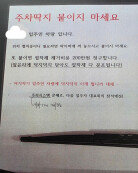Male Quota
One out of every three Korean conglomerates has a male quota for employing college graduates. The system is designed to hire a certain ratio of male applicants regardless of their interview performance, in order to prevent too steep a rise in female new hires.
The fact was revealed in the Dong-A Ilbos survey of 30 companies, two major companies each from 15 industries, including electronics, IT, chemicals, food, communications, credit cards, banking, and securities, conducted from August 1 to 6.
About 10 of the 30 companies said that they had a male quota in place. Also, another two financial institutions artificially increased the number of male new hires by recruiting newcomers by job groups in which women applicants were effectively excluded.
All in all, the number of companies that use a male quota system, directly or indirectly, was 40 percent of the companies surveyed.
HR departments of the 12 companies explained the reason for such a system by saying, As increasing numbers of women newcomers join the organization, more and more departments began to complain of the inefficiency of women workers and asked us to send them male employees, adding, There was an internal change of employment standards to prevent the number of women newcomers from exceeding a certain level. If interview performance is the only criteria in employment, more than half of the new employees are usually women, which is against the demand from other departments.
Both of the major companies surveyed from the food, chemicals and IT industries reportedly have a male quota in place. One of the two major companies from the insurance and communications industries has such a system.
The financial industry is known as not discriminating based on sex, but some banks have a male quota as well. A former public corporation privatized a few years ago admitted that it uses a quota but refused to confirm whether it used the system when it was a public corporation.
In contrast, it is found that the retail and airline industries, which have a high demand for female workers, and the construction, heavy industries, oil refining, securities and electronics industries, which are traditionally unpopular among women job seekers, do not have such a system.
Regarding the legality of the male quota, experts have mixed opinions.
Lawyer Park Sang-hyeon said, It is a corporations discretion to employ talent that it needs, according to its management judgment, adding, There are no grounds for regulating such practices in the Equal Opportunity Employment Act. However, Kim Tae-hong, a director at the Labor Ministry, said, It is discrimination to base employment on a predetermined quota of male and female employment numbers. If the employer fails to offer a reasonable rationale for employing males for a certain job, it falls into the category of indirect discrimination.
The survey was conducted in the form of face-to-face interviews and telephone surveys for HR officials at each of the 30 companies. Out of respect for the wishes of the companies surveyed, the names of the companies have not been disclosed.







